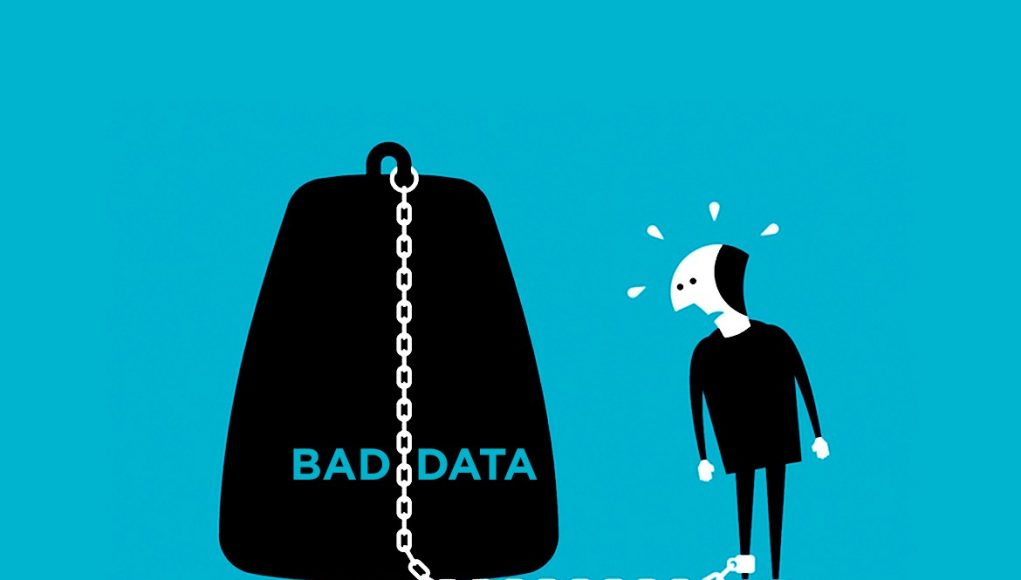If you’ve got a database full of inaccurate and messy data, you might as well have no data at all.
In this fast-moving digital world, good, reliable data is one of the major currencies that drives a successful operation.
Sadly, many organisations fail to realise the importance of data management to their detriment. Dun and Bradstreet’s recent survey of 500 UK businesses, ‘The Past, Present and Future of Data’, found that 41% of those surveyed admitted that no one in their organisation is responsible for the management of data.
If data management isn’t made a priority, data errors can have a huge effect on daily business decisions, ultimately resulting in reduced profitability and success.
Bad data can affect every aspect of your business.
It costs money
All marketing campaigns or sales incentives rely on data at the core. No matter the genius of your marketing idea, if it’s not targeting the right people through poor quality data, you’re going to be wasting a huge amount of your budget. Even more so if you purchased the data in the first place for the campaign.
It Wastes Precious Time
You spend hours creating the perfect campaign, perhaps working to a demographic that’s created from less than accurate data. These marketing resources then create a list of leads that are passed on to a sales team, only for them to find the leads are often useless. Time is money, and if bad data is resulting in lower than expected results, you may need to go right back to the drawing board. Taking a long hard look at how and from where your data is being gathered could be time well spent.
Bad data can affect staff morale and performance
Ineffective campaigns can have a negative impact on staff morale and performance. If misguided marketing collateral brings in poor quality leads, sales staff and marketing teams are going to question their abilities. In addition, sales teams will lose faith in their marketing teams to bring in quality leads. People respond to positivity and success and if sales teams aren’t experiencing this they may lose their commitment and drive.
Bad data can start a vicious cycle
If you use the distorted metrics of previous campaigns that were planned using false data, you may make decisions on subsequent campaigns based on false assumptions.
And, once identified, doing nothing about the bad data will only result in the data being used again in a future campaign.
But surely any data has it’s worth?
The answer to that is most definitely no. Data has become increasingly complex and in order to derive any value from the information you collect, high volumes of data require cleansing, validation, de-duplication, and regular auditing.
Data capture is now becoming more and more sophisticated and the businesses that are honing and streamlining this skill are the ones that are reaping the rewards.
False information, incomplete information, out-of-date information, and irrelevant data are all warning signs that your data management needs some tweaking.
Thankfully there are some easy steps you can take to help improve your data accuracy.
Choose your data sources carefully
Identify the right data sources, both internally and externally. Use only reliable data resources. Incorrect data may result from the migration of data from one database to another, the presence of incorrect values, or even time-bound data changes. It is important to identify the cause for incorrect data and try to fix it.
Communicate the problems with the data
Everyone in an organisation needs to be aware if there is a problem with your data so they can adjust their decision making accordingly.
Fix the data problem when it arises
You’ve managed to identify problems with the data after running a campaign or even before it. Get rid of any bad data or fix and populate the gaps so that you are certain that next time you won’t get the issue again.
Doing nothing will only result in the data being used again, incurring cost and wasting everyone’s time.
Adopt accuracy standards
Companies must adopt highly robust data entry quality standards such as matching, geocoding, data monitoring, data profiling, linking, etc. This ensures that the data entered conforms to pre-defined data standards which in turn helps in improving the data quality.
Create a ‘data champion’ in your organisation or even by department who will ensure that data policy standards are adhered to and respected even further.
Limit manual intervention
Use automated and computerised programmes to help with the data maintenance and data cleansing process. There is a huge room for mistakes and human error in the manual mechanism of data entry and information recording. There is also a high risk of compromised and inaccurate data entries due to personal biases.
With the cleansing of email addresses in particular, there are multiple tools on the market that will not only check the formatting for you but will also check the validity of those addresses for you as well.
Data Error Reporting
Making use of and paying attention to error reporting is crucial and will save you a lot of time in the long run. Using the software tools to highlight and remove bad data, and automating the process too, will give you better confidence in your marketing campaigns. advanced error identifying software is always a plus point for any company. This is especially beneficial when you are entering the same kind of data for a project.
Sophisticated information is crucial for the future success of any business
In the last decade, the volume of data and the types of information available has expanded. This is good news in the long term, but like anything, over-complicating things can have its downsides.
20% of businesses last year admitted to losing a deal to bad data. To ensure the accuracy of your data and make the most of the information available to drive the success of your business, data management and processing has to be made a business priority.








